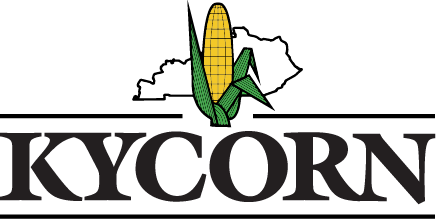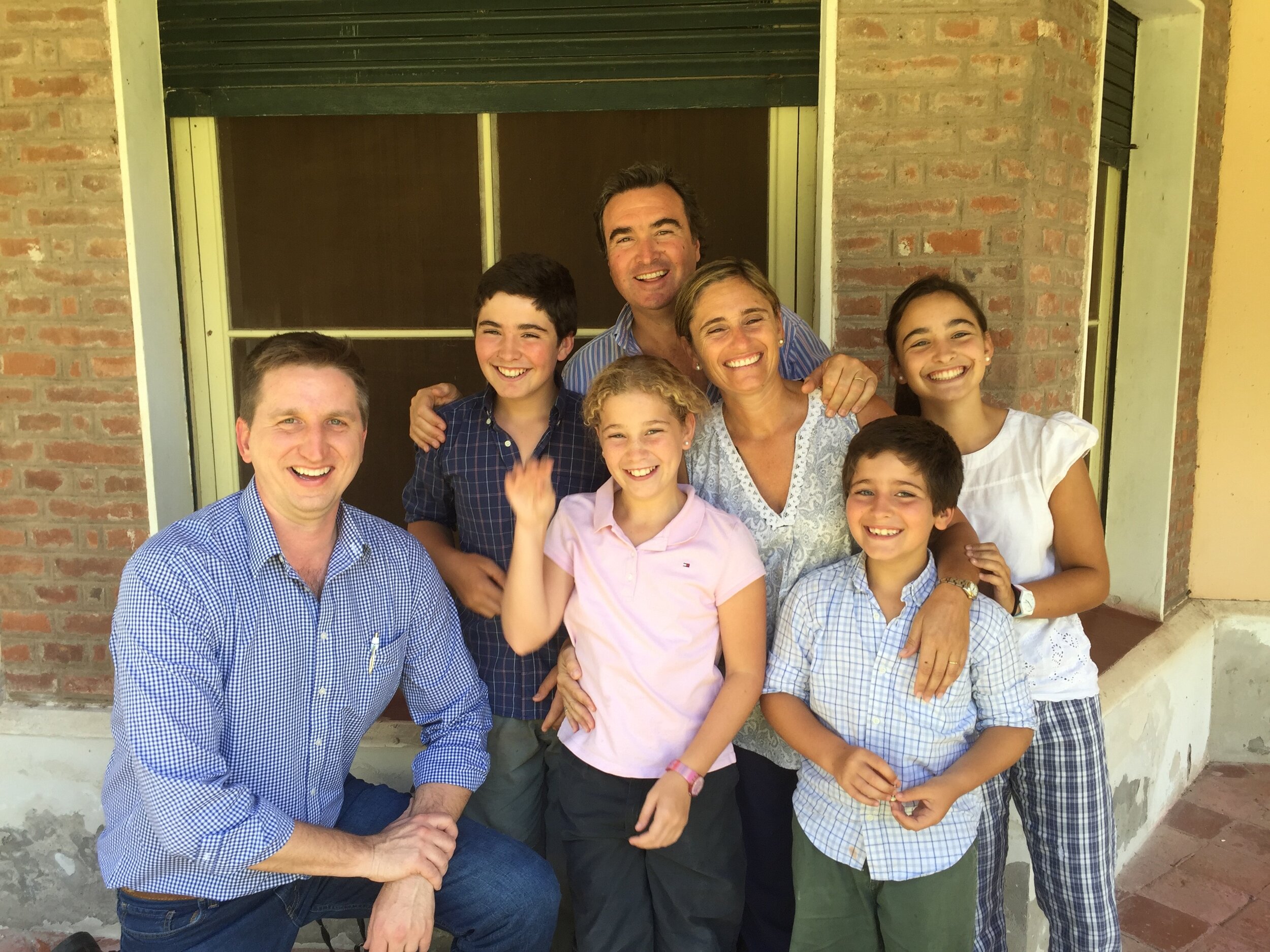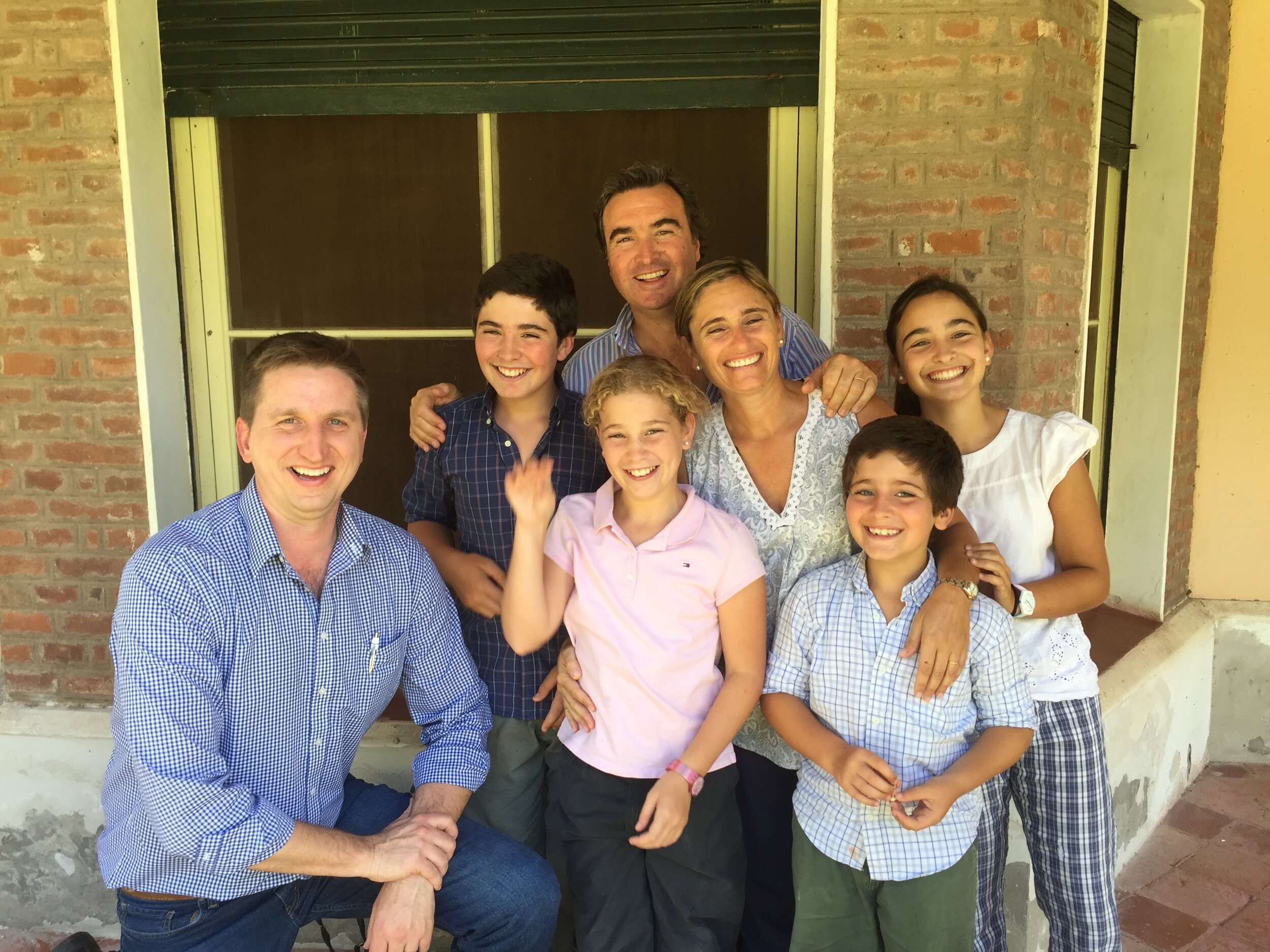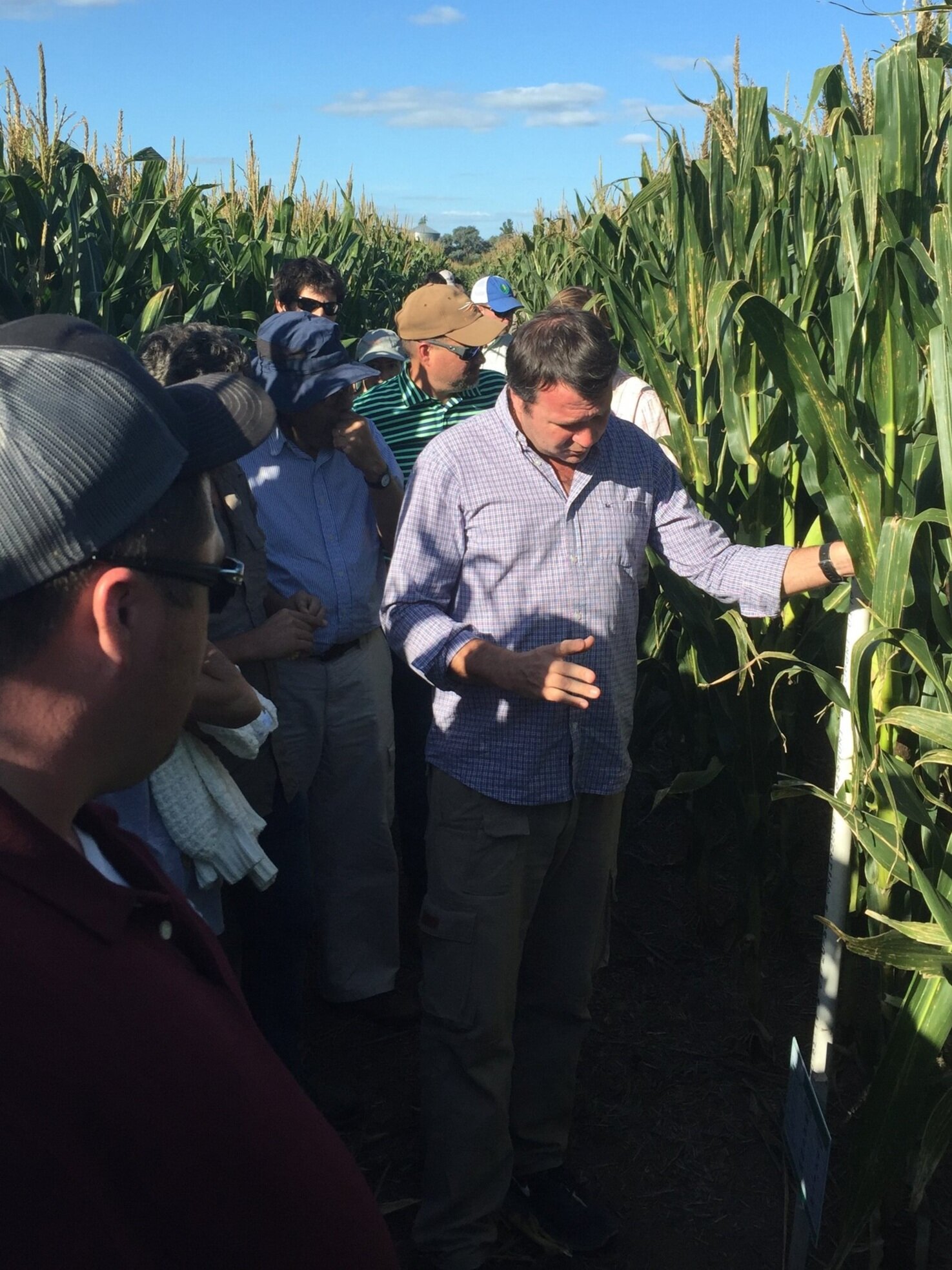Chad Lee with the Uranga family in Argentina. Chad will introduce Maximo and Josefina, along with Joaquin Lagos, in the Early-Riser Session at the Kentucky Commodity Conference. They will discuss the ups and downs of growing grains in Argentina.
By Chad Lee, Director of the UK Grain and Forage Center of Excellence
Farming is a challenge. We are at a low point in the cycle of grain prices and making a profit is not easy right now. But, it could be worse. We are going to talk to a couple people who are living in that worst situation right now and learn how they are making farming work.
With soils deeper than the height of most grain bins, rainfall that peaks during seed fill, a two-month planting window, no need to adjust soil pH, extremely high soil potassium values, and about 70 pounds of nitrogen released by the soils each year, the Humid Pampas of Argentina sounds like a “Garden of Eden” for grains and soybeans. On the other hand, extremely high taxes, zero government subsidies, expensive crop insurance, poor rural infrastructure, dirt roads that can flood out during harvest, a federal government near default and skyrocketing inflation, farming in Argentina sounds like one of the rings in “Dante’s Inferno.” Yet, some farmers are making a living as they weather the storms of these extremes.
Maximo and Josefina Uranga along with Joaquin Lagos and their families are navigating the rough waters of Argentina’s government and economy to master the smooth sailing of their natural resources. Both implement nearly 100 percent no-tillage across all of their acres. They credit Kentucky as being the source of no-tillage.
Joaquin Lagos walked with KyCorn CORE Farmer Program alumni through a test plot during a visit to his Argentina farm.
Joaquin farms near Venado Tuerto, regarded as the center of the best soils in all of Argentina. He and his wife, Julia, grow soybeans, corn, wheat and sunflowers. Maximo and Josefina both earned graduate degrees at the University of Kentucky. Maximo studied soils and Josefina studied beef cattle economics. They raise corn, soybeans, beef cattle and have started an organic vegetable farm to try to meet market demands.
Extremely high interest rates, high inflation and uncertainty in the government demands that Joaquin and Maximo operate differently than how we operate in the U.S. In our challenging economic times, these two farmers can provide you with important information and ideas to help you navigate our waters.
To hear these farmers, be sure to attend the Kentucky Commodity Conference, January 16, in Bowling Green, KY.



